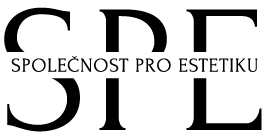Marie Antonios Sassine (Dominican University College, Ottawa)
The World is a Stage: The Beautiful and the Political. An Enquiry into Kant’s Critique of Judgment as Political Model
5. 12. 2023, 17:30
katedra estetiky, místnost C505 (Celetná 20, Praha 1)
Wittgenstein famously said, « ethics and aesthetics are one » (Tractatus 6.421). Kant’s two Critiques, the one on practical reason concerned with ethics and the one on the power of judgement focused on aesthetics, would indicate they are two separate domains requiring different applications of reason and judgement. Yet the Critique of the Faculty of Judgment has exercised a strong appeal to political theorists who value plurality and lucid discourse as integral elements of free political life.
This lecture will examine the incarnation of Kant’s Critique of the Faculty of Judgment as a model for political judgment, notably in Hannah Arendt’s interpretation. It will highlight the elements in Kant’s analysis of the judgment of the beautiful that have served to nourish some contemporary notions of political deliberation. The pitfalls and potential promise of transposing an aesthetic appreciation to the political realm will also be considered.
In Kant’s view, aesthetic judgment is profoundly subjective, grounded in the feeling of pleasure or displeasure. Taste is a personal matter. It has, the particularity, however, of being communicable since it arises from reflective judgment. In judgments of taste, pleasure and displeasure are not pure sensation, but reflected feelings. To judge an object as beautiful, according to Kant, is to believe at the same time that others would find it so. This underlying and implicit dimension is what renders the experience of beauty communicable, absent any absolute definition of beauty. One might say the private experience of pleasure through the faculty of judgment is immediately also potentially inter-subjective as well as communicable. Inter-subjective experience and communicability are features that have inspired contemporary political thought in thinkers such as Arendt, Habermas and Rawls, but whether their genesis and ultimate goal resides in the judgment of taste or in cognition remains contested and open for discussion.
Dr. Marie Antonios Sassine’s primary areas of focus are phenomenology, continental philosophy, philosophy of science, and Islamic and Arabic philosophy. She has given conferences and published articles on the creative imagination in Ibn’Arabi and Philo of Alexandria, on Jan Patocka and Plato, as well as on Husserl and Jean Ladrière and their critique of technique. Her current research focuses on technology as a specific relation to truth, its mathematical underpinnings, and their consequent transformation of public and social spaces.
